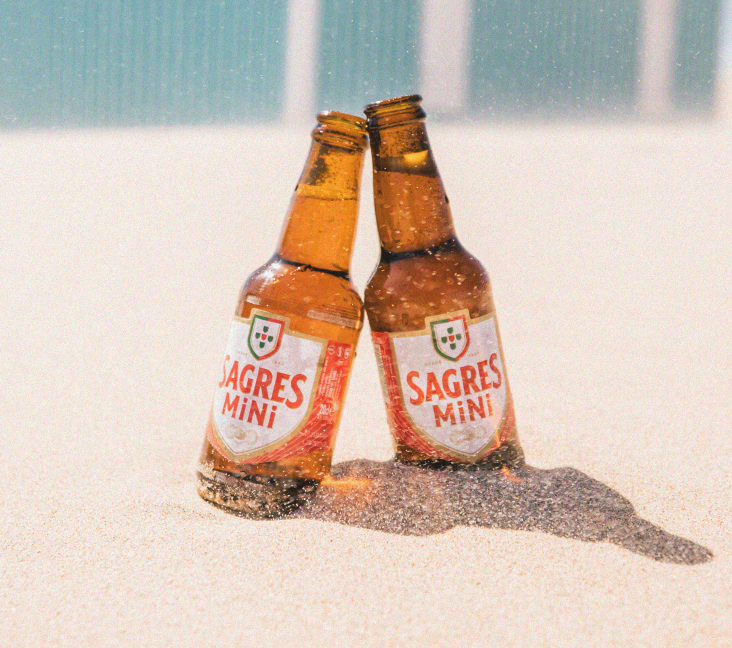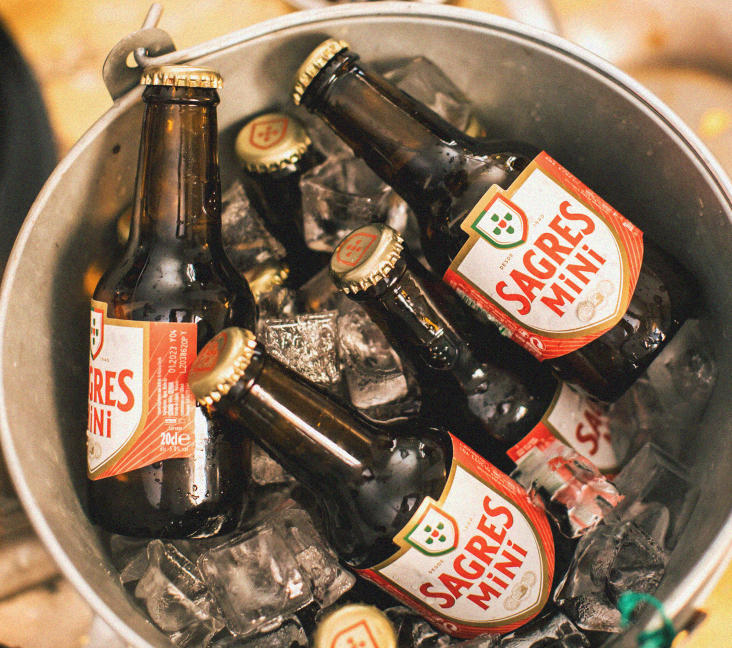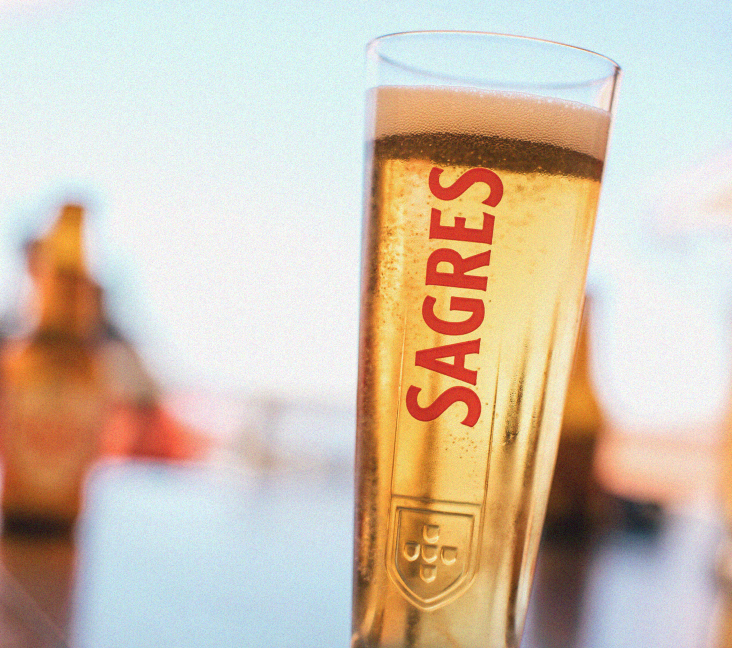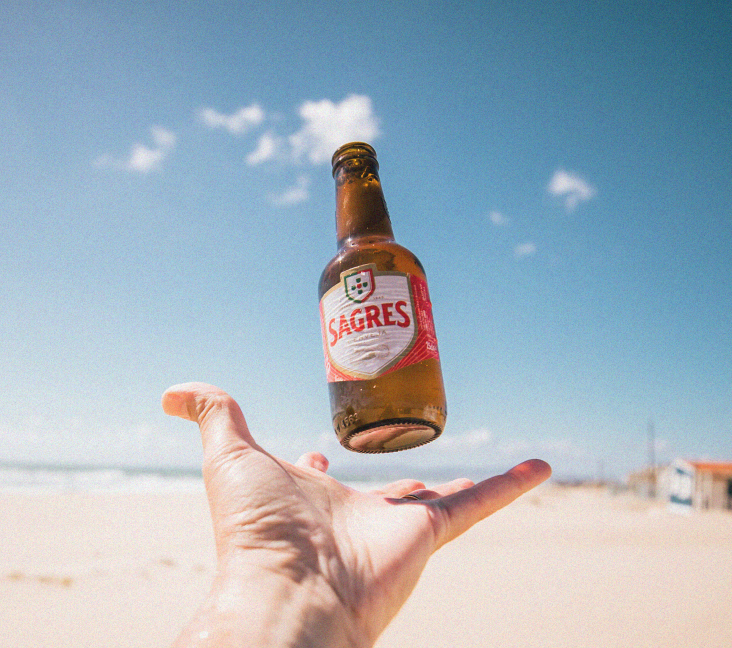FAQS
WHAT IS ALCOHOL?
Alcohol is created when fruits, vegetables or grains are fermented – that is, when yeast or bacteria ferment the sugars contained in the food product, chemically transforming them into alcohol. The chemical name for the alcohol contained in alcoholic drinks is ethanol.
Ethanol is a colourless fluid that is lighter than water – a millilitre weighs about 0.8 grams. The quantity of alcohol in different fermented products varies a lot. The percentage of alcohol contained in a typical portion of beer is around 5%. For wine and spirits, that percentage is about 12% and 35%, respectively.
Alcoholic drinks also contain energy (calories) in the alcohol (30 kilojoules per gram). The nutritional value of most alcoholic drinks is very low because they have a low content of protein, fat and other nutrients. Some drinks, such as beer, contain sugar and carbohydrates, as well as some B-complex vitamins, micronutrients and minerals.
HOW DOES ALCOHOL AFFECT ME?
Alcohol affects us all in different ways, and even one or two drinks can affect you. Alcohol accelerates your pulse and breathing. It dehydrates the body, making you want to urinate. Alcohol reduces your ability to concentrate, your coordination and even your vision. Even after drinking the smallest amount of alcohol, you're more likely to make mistakes and wrong decisions.
Your ability to drive a car or any other vehicle safely can be compromised even when the level of alcohol in your blood is far below the legal limit. Safe driving requires good vision, good sense and fast response times. Alcohol negatively affects all three of these. If you drink and drive, you run the risk of killing yourself or hurting yourself and other people.
The safest approach for someone who intends to drive is simply not to drink. Drinking a lot and regularly may cause a variety of social, psychological and medical problems, including alcohol addiction.
WHAT'S THE SAFE AMOUNT OF ALCOHOL TO DRINK?
As global brewers, we believe that if you want to drink beer you should always do so in moderation, in the right place, at the right time, and for the right reasons. There are also some situations in which you are not allowed to drink alcohol, although legislation or government guidelines may permit restricted drinking.
Many governments and health authorities provide daily or weekly guidelines on the number of alcohol units that you should drink. In some of our markets, we include that information on our product labels. The health and behavioural risks associated with alcohol abuse over time or on particular occasions are very clear.
Cultural aspects, religious beliefs and legislation may influence our drinking behaviour, but in the end, people decide for themselves if they're going to drink or not, and how much they're going to drink. If people drink alcohol in an inappropriate way, they become a potential hazard to themselves and to others.
ARE THERE ANY OCCASIONS WHEN I SHOULDN'T DRINK?
There are situations when the best is not to drink, even if legislation or government guidelines allow for consumption in moderation.
If you are:
- Driving or intending to drive
- At work, especially if your job requires you to use complex or dangerous materials or machines, or to be highly focused
- Pregnant or trying to get pregnant
- Below the legal age to drink or to buy alcohol
- Unable to control the amount of alcohol you drink
- If your doctor has advised you not to drink. As global brewers, we believe that if you want to drink beer you should always do so in moderation, in the right place, at the right time, and for the right reasons. There are also some situations in which you are not allowed to drink alcohol, although legislation or government guidelines may permit restricted drinking.
WHY DO DIFFERENT PEOPLE "BURN" ALCOHOL AT DIFFERENT SPEEDS?
The blood alcohol concentration (BAC) is determined by the amount of alcohol that is absorbed from the intestines into the blood and by the amount of alcohol that is broken down by the liver. The BAC is influenced by several other factors. For example, combining alcohol consumption with a meal helps to reduce the blood alcohol level.
The blood alcohol level depends on how many drinks you've had; how fast you drink, your weight and your gender – not how frequently you drink. The same alcohol consumption leads to lower BAC levels in men as in women. On average, men weigh more and have a considerably larger percentage of body fluids.
Women metabolise alcohol more slowly than men, which means it remains longer in their system. Although the process of alcohol breakdown may vary significantly in different people, on average, the liver is able to break down approximately eight grams of alcohol per hour.
DOES ALCOHOL INFLUENCE WOMEN AND MEN IN A DIFFERENT WAY?
The answer is simple: Yes. The same amount of alcohol leads to a lower BAC in men than in women. On average, men weigh more and have a considerably larger percentage of body fluids.
Women metabolise alcohol slower than men, which means it remains longer in their system. Consequently, the same amount of alcohol will have a bigger impact on women than on men, even when body weight differences are taken into consideration.
IS IT SAFE TO DRINK DURING PREGNANCY?
It is safer for women who are pregnant or trying to get pregnant not to consume alcoholic drinks. When pregnant women drink, alcohol is carried not only to the organs and tissues, but also to the placenta, crossing the membrane that separates the body systems of the mother and the child.
Therefore, when a mother drinks, the baby also drinks. Several behavioural, physical and development disorders have been associated to alcohol consumption during pregnancy. Foetal Alcohol Syndrome is the best researched so far and is associated to the chronic use of alcohol by pregnant women.
There isn't enough evidence to establish a safe alcohol consumption level during pregnancy. Effectively, the safest approach is not to drink at all.
WHY IS IT BETTER TO DRINK ON A FULL STOMACH?
When our stomachs are full, the alcohol is transmitted to the large intestine in a slower way, which can modify its absorption. If you drink after eating, the effects of alcohol will take longer to appear, and the blood alcohol concentration will rise slower than when you have an empty stomach.
DOES DRINKING COFFEE HELP ME SOBER UP?
Black coffee, a cold shower or some fresh air won't neutralise the physical effects of alcohol. They may make us feel better, but only time can remove alcohol from the bloodstream.
WHY ARE MINORS NOT ALLOWED TO DRINK ALCOHOL?
Minors have absolutely no experience with drinking and don't know their limits. To drink during puberty may affect the development of the brain, the liver and the hormonal system.
Different countries define alcohol consumption by underage people in different ways, mainly regarding the legal age for purchasing alcohol. People who are under the legal age to buy and/or to drink should not buy or drink alcohol.
WHAT IS A HANGOVER?
An evening of binge drinking often becomes a very uncomfortable morning after. The breakdown of alcohol in the body transforms it into substances that have very unpleasant effects. Alcohol irritates the human body in many different ways, but mainly it suppresses the activity of the hormone that inhibits the secretion of urine.
As a result, you feel the urge to go to the toilet more often when you drink, and you therefore lose more fluids and can become dehydrated. It is no surprise, then, that you wake up in the morning feeling terrible: probably with a headache, possibly also nauseated, trembling and, most certainly, with a dry mouth and very thirsty.
WHAT ARE THE POTENTIAL EFFECTS OF ALCOHOL CONSUMPTION ON OUR HEALTH?
The acetate resulting from alcohol, mainly produced in the liver, causes depression in the central nervous system. This influences behaviour and triggers a lack of inhibition, reduces the ability to solve problems and causes altered emotional states, depression or agitation.
It also affects memory and motor skills, for instance in the reduction of response times. In increasing amounts, alcohol may lead to accidents or contribute to inappropriate decision-making, violence or unwanted pregnancy.
Severe alcoholic intoxication resulting from the excessive consumption of alcohol may result in seizures, coma or death. In general, there's a "J" type of relation between the consumption of alcohol and mortality. This means that people who consume low to moderate amounts of alcohol have a lower death risk than people who don't drink, as well as a lower risk than those who consume large amounts of alcohol.
Chronic alcohol abuse may cause liver diseases that vary from slight disorders like hepatic steatosis to serious illnesses that may jeopardise your life, like cirrhosis. The cardiovascular system is one of the main physical systems that is influenced by alcohol consumption. Population-based studies conclusively show that moderate consumption of alcoholic drinks has a protective effect.
This effect applies both to women and men and has no correlation with the type of alcoholic drink. However, the consumption of large amounts of alcohol leads, for example, to hypertension and a bigger risk of cardiovascular diseases.
Moderate alcohol consumption has also been shown to protect against diabetes and dementia. There is a correlation between alcohol and certain types of cancer. For instance, a bigger risk of breast cancer and oesophageal cancer is related to the consumption of alcohol and that risk increases along with increased consumption.
WHAT IS ALCOHOL ADDICTION?
Alcohol addiction is a syndrome characterised by a physical and psychological addiction to alcohol. This means that people who are addicted to alcohol begin showing physical and psychological symptoms when they stop drinking.
The consumption of alcohol interferes with their daily life, at work as well as at home. People who struggle to control moderate alcohol consumption should see a doctor and shouldn't drink at all.








